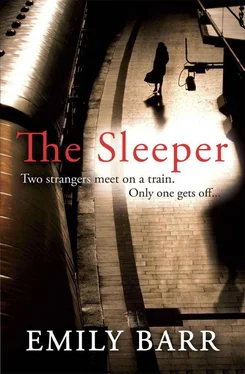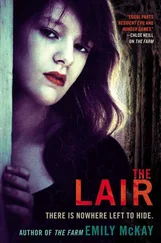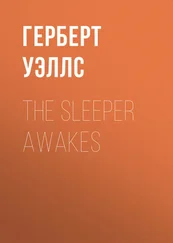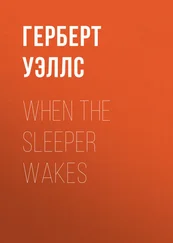I lie awake in the narrow bed, feeling the train jolting over the rails as it takes me inexorably towards the city, and I grin, then laugh aloud in the near-darkness at the sudden change in my life. Six weeks ago I was aimless and bored: I was ‘Sam’s wife’ and ‘that woman in the waiting room’. I wandered around Falmouth and crossed to St Mawes on the ferry for no reason, even though I could barely afford the fare. Now I am myself again, dashing back into the city, turning my back on frustration and failure, and throwing myself into a job that I hope I am still good at. I pretend to myself that I am doing this solely for the money.
I do not think I will sleep, yet I do, quickly, and when I wake up, the train is still. I can hear sounds outside, sounds that, despite the docks, we do not hear in Falmouth. They are the noises of Paddington station in full flow. There are engines and squeaky wheels, a voice suddenly raised in warning, abrupt laughter. There is a muffled announcement, unmistakably about a train even though I cannot hear the words. My closed blind is a grey rectangle, the morning lurking beyond it.
As I reach for my phone, tucked into the mesh pocket beside my bed, there is a sharp rap on my door, and the friendly woman sings out: ‘Morning! Breakfast!’
I reach across and unclick the door without leaving my bed, and she is in the room, putting down the tray table, making sure my tray is safely on it.
‘You’ll need to be off the train by seven,’ she says, as she leaves. ‘You can wait in the lounge at Paddington after that if you like. Do you know about the lounge on Platform One?’
‘Thanks,’ I tell her, ‘but I’ll go straight to work.’
The coffee is train coffee, and the croissant comes out of a plastic packet, but all the same, I savour them both. I take a photograph of the tray, with my breakfast half eaten, and text it to Sam. That seems like a nice thing to do.
At Paddington , I write. They’re feeding me. It’s all fine. Off to work in a min. Will call you later. xxx
Then I do my best to wash with the flannel the train people have given me, and apply a liberal amount of deodorant. I get dressed in the skirt, blouse and jacket I carefully hung up last night, and, since there is no chance of washing and drying my hair, I stand in front of the mirror and spend twenty minutes fastening it into a chignon type of affair, with the many hair grips I brought along for this purpose. I do my make-up the way I used to do it, when I was a Londoner. Finally I add the finishing touch: my work shoes. I have kept these for years, and they are probably officially ‘vintage’ by now. They are high, classic Mary Janes of the sort that a secretary from the fifties might have worn on a night out. They are dark red and I adore them. I step into them and into an abandoned, semi-familiar persona.
I smile at the mirror. I am the right Lara. There have been many over the years, and this, I can now see, is the one I liked being the best. The busy one. The successful one. The polished one. The one who is fucking brilliant at what she does.
This is the selfish one: this is the single one.
It is seven o’clock. I step off the train directly behind a woman who is, I think, in her fifties. She, like me, is dressed for work, and she has dealt with the hair problem by putting on a wide hairband, the sort of thing people wear on the beach. It is pale green, the same colour as her outfit, and she makes it work.
‘Morning,’ she says with a grin, turning on the platform and waiting for me. I like her instantly. If this woman was in a colouring book, I would colour her in orange and red, with benign flames shooting happy things at the people around her.
‘Good morning.’ I feel a bit shy, but the sudden surge of camaraderie makes me smile.
‘Straight to work?’ she asks, eyeing my outfit. ‘Or are you grabbing a coffee first? I always think the station ones are so much better than that shite they give you on the train that it would be criminal not to knock one back. Since they’re free. Or not free. You’ve paid for it in the hefty cabin fare. It’s already yours. You have to take it.’
‘I was going to go straight to work.’ I look at the old-fashioned clock on the wall in front of us. ‘But it’s my first day and I would only have found the nearest Costa and waited it out in there feeling nervous. So I might grab one, actually. If it’s going to be a half-decent one, even better.’
I stop for a second to savour the London air. It is dirty here, and dusty with the mechanics of the station. I love it.
The woman flashes me a wide grin, and I follow her through a door and past a uniformed man sitting at a table reading a paper, waving my ticket at him since she does. The room is filled with tables and chairs, a screen high on the wall playing silent, subtitled television. The woman heads straight to the coffee machine. We both take large white cups on saucers that remind me, with a jolt, of a cup Sam sometimes uses at home.
‘First day?’ she says, as we sit together at a table. There is food here, pastries and bananas and biscuits on big plates, but, like the woman, I do not take any. I sip the coffee. She is right. It is perfectly acceptable. ‘What does that mean? Have you been on maternity leave or something?’
Again, everyone wants to talk about babies.
‘Nope. It’s a long story. Moved to Cornwall with my husband. I gave up work. He had a job down there.’ I hesitate, reluctant to share our full story with a stranger. ‘He still does. I was offered something like my old job back on a six-month contract, and we needed some funds, so here I am.’
‘Weekly commuting for six months?’
‘Yes. Is that what you do? Weekly commute?’
‘Pretty much. Not all the time, but essentially you’ll see me most Sunday and Friday nights. There’s a few of us. We sometimes go for a drink in the lounge. Fridays are the best. I’m Ellen.’
‘Lara.’
‘Lara,’ she says, looking at me with an assessing gaze. ‘That’s a very glamorous name. It suits you.’
‘Um, thanks. I had no idea that commuting like this was a thing people do. I thought it was just me. What’s your job?’
‘Banking. You know. In London I’m one of the hated bankers, but no one really hates us. In Cornwall I’m just a woman who works in London.’
‘Why don’t you live in London?’
She shrugs. ‘I love Cornwall. I love my weekends there. It’s glorious. I would far rather live like this, because you do get fond of that train ride, than have some stupid flat in Clapham like everyone else. My partner’s in Cornwall. He’s a farmer, so he can hardly do that in the big city. It can get knackering, but I do generally love it.’ She smiles and looks around. ‘There’s nothing like the buzz. People hate Monday mornings. I don’t.’ She lifts a hand and waves to somebody. ‘I relish them.’
‘That’s great to hear. Hey, this coffee isn’t exactly amazing, is it?’
‘Oh God, no. Not in comparison with actual coffee. It has caffeine in it, though, and it’s relatively fresh. It’s the caffeine that does the job for me.’
‘Oh, me too.’ I think of Sam, and the way he carefully gave up caffeine with me as part of our bid to conceive. We both operated under the solemn pretence that the absence of coffee-related products in our systems would suddenly propel sluggish sperm to recalcitrant egg and produce a child where there would otherwise not have been one. I knew all along that the subtle realignment of the universe to make it greyly decaffeinated was not, actually, going to tip the balance, but I went along with it anyway; just in case.
‘Do you have children?’ I did not mean to say that. I resent it greatly when strangers ask this of me, and here I am doing the same thing. ‘I mean, I’m sorry, I don’t mean to …’
Читать дальше










